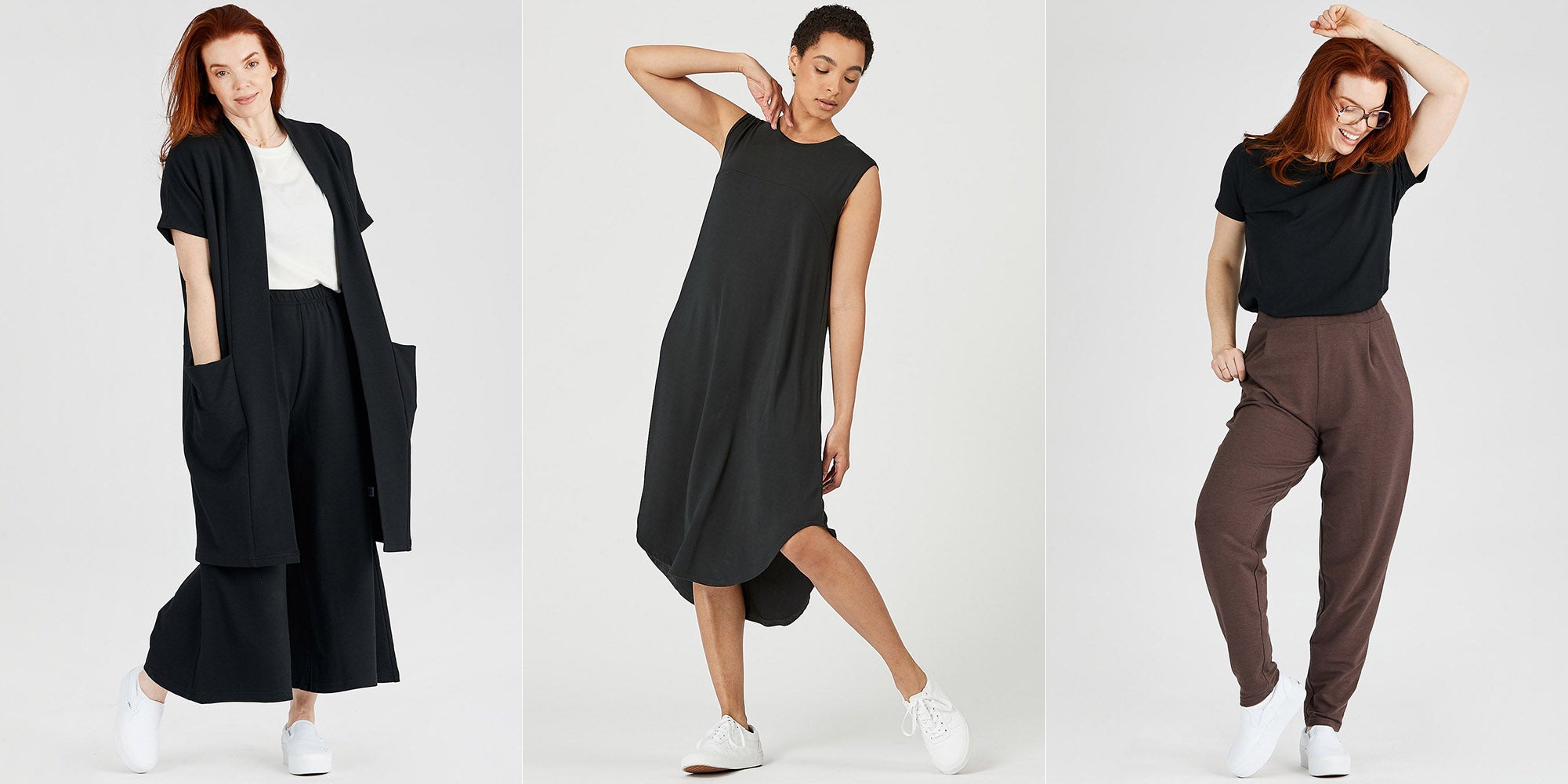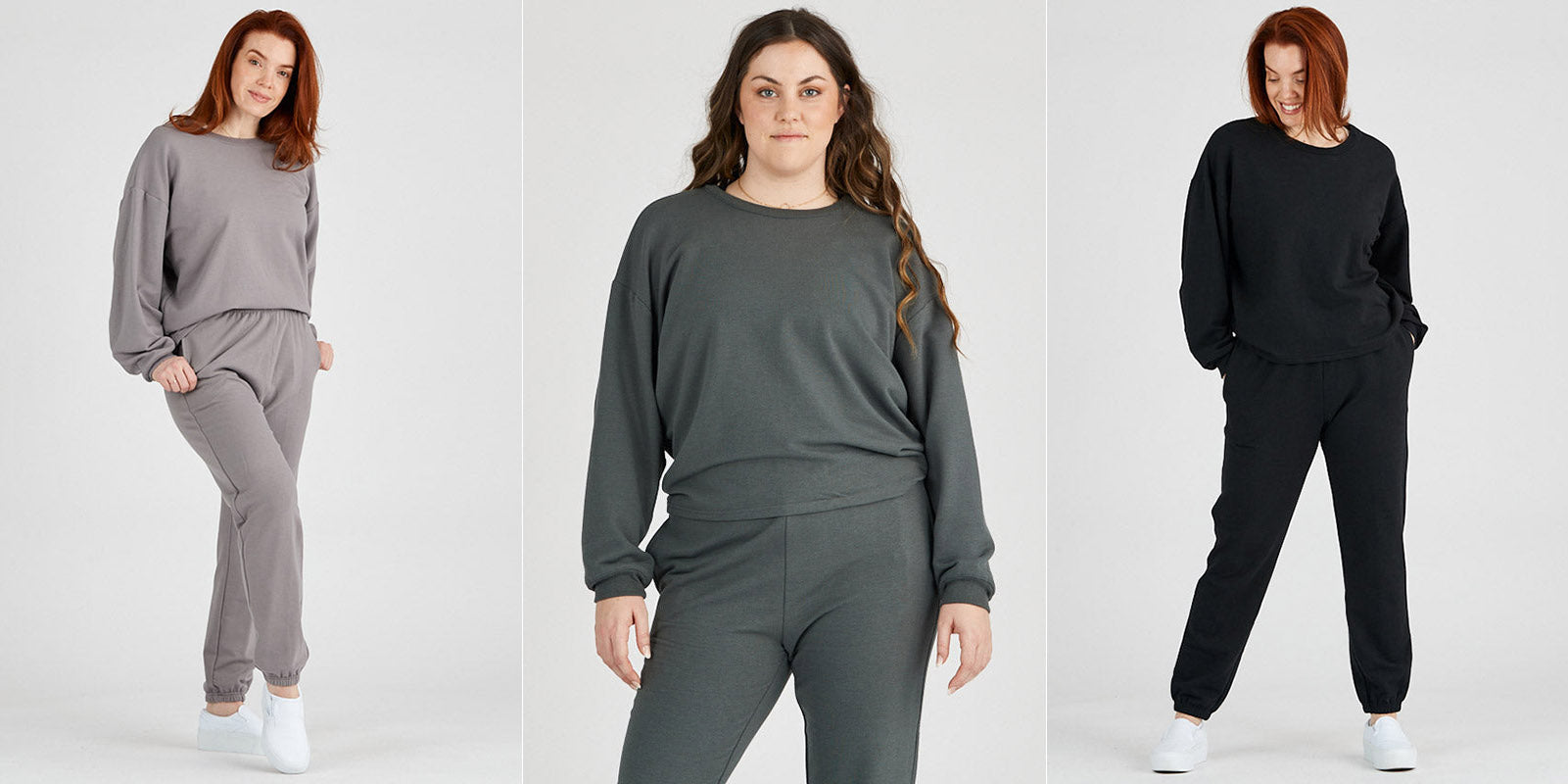Advika's Eco-Friendly Fabrics: A Sustainable Luxury
Introduction
Exploring Sustainable Fabrics: What Does It Truly Mean?
You've heard about fabrics such as Tencel, bamboo, organic cotton, and modal being talked about as "sustainable”, but what exactly does that mean? Is it merely marketing? Or are there actual differences compared to conventionally produced fabrics when it comes to ethics and their environmental impact?
Advika's Commitment to Sustainability
Your Style, Your Responsibility
As a sustainable clothing brand committed to eco-conscious fashion, Advika invites you to explore the world of lush fabrics that define our loungewear. These textiles wrap you in comfort while wholeheartedly embracing eco-friendly principles.
We know that your clothing choices are more than mere fashion statements; they are reflections of your commitment to environmental sustainability. We at Advika Clothing believe that every consumer deserves to have knowledge and transparency from clothing brands in order to make purchasing decisions that they will feel good about.
That's why this article reveals the key to Advika's sustainability and guides you toward informed choices in style and ethics.
Within these pages, you will discover:
- The sustainable fabrics we use
- Why are these fabrics sustainable?
- How do our fabric choices benefit you?
Get ready as we explore the sustainable fabrics that set Advika apart.
Discover Our Sustainable Fabrics:
Tencel (Lyocell) Fabric
The Eco-Friendly Elegance of Tencel
Tencel, a.k.a. Lyocell, is derived from wood pulp, primarily sourced from eucalyptus, oak, and birch trees, making it an eco-friendly material.
Why Tencel is a Sustainable Choice
Production Process: The creation of Tencel involves a closed-loop process that recycles nearly all solvents and water, minimizing waste and environmental impact. This innovative process ensures that resources are efficiently utilized, setting it apart from conventional fabric production methods.
In contrast, conventional fabric production can be highly wasteful, with significant chemical and water waste, making the closed-loop process an environmentally responsible choice.
Biodegradability: Tencel is a friend of nature; it decomposes naturally, leaving no harmful waste.
Sustainable Forestry: Tencel's tree source is harvested sustainably, ensuring an endless supply of renewable resources.
Efficient Water Usage: Compared to traditional cotton, Tencel consumes significantly less water, reducing its environmental footprint. Specifically, Tencel uses approximately 80% less water than conventional cotton, making it a responsible choice for water-conscious consumers.
Benefits of Wearing Tencel
Comfort: Tencel's smooth caress against the skin is the epitome of comfort, making it perfect for loungewear.
Breathability: Its high breathability wicks moisture away, ensuring you stay cool and dry.
Hypoallergenic: Gentle on sensitive skin, Tencel is a blessing for those prone to irritation.
Durability: This fabric's resilience reduces the need for frequent replacements.

Tencel Duster Cardigan | Tencel Aaron Pleated Pants | Tencel Aiken Dress
Bamboo Fabric
Bamboo: Nature's Sprinter
Bamboo fabric is made from bamboo plant pulp, which is prized for its rapid growth and sustainability.
Why Bamboo is Sustainable
Rapid Growth: Bamboo is nature's sprinter, boasting one of the fastest growth rates among plants globally. In fact, bamboo can grow up to 91 cm (36 inches) in just 24 hours! This astounding growth rate ensures a continuous and abundant source of renewable material for fabric production.
Low Water Usage: Minimal irrigation is needed for bamboo compared to traditional crops.
Benefits of Wearing Bamboo
Softness: Luxuriously soft bamboo fabric envelops your skin in a delicate embrace.
Thermoregulation: Bamboo adapts to your body temperature, keeping you cool in summer and warm in winter.
Moisture-wicking: Bamboo's absorbent properties keep you comfortable all day.
Antibacterial Properties: Natural antibacterial qualities combat odor effectively.

Organic Cotton Fabric
Cultivating Sustainability with Organic Cotton
Organic cotton, grown without synthetic pesticides or genetically modified seeds, fosters healthier soil and less chemical runoff.
Why Organic Cotton is Sustainable
Minimized Chemicals: Organic cotton cultivation mitigates environmental harm by eliminating synthetic pesticides and fertilizers, reducing chemical contamination of soil and water sources. Conventional cotton farming, on the other hand, often relies heavily on these harmful chemicals, leading to significant ecological damage.
Non-GMO Seeds: Organic cotton thrives on non-genetically modified seeds, nurturing biodiversity.
Healthier Soil: Organic practices rejuvenate soil health, promoting long-term sustainability.
Benefits of Wearing Organic Cotton
Softness: Organic cotton epitomizes softness, breathability, and everyday comfort.
Hypoallergenic: Gentle on sensitive skin, organic cotton is unlikely to cause irritation.
Longevity: Organic cotton garments endure multiple washes, standing the test of time.

Modal Fabric
Modal: Sustainable Softness at Its Best
Modal, a rayon derived from beech tree pulp, is renowned for its sustainability and is often referred to as "vegetable silk."
What Makes Modal Sustainable
Beech Trees: Modal's source, the beech tree, is a fast-growing species that thrives with minimal water and pesticide intervention. This ensures a sustainable and abundant source of raw materials for modal fabric production.
Closed-Loop Process: Modal takes shape in a closed-loop process, conserving precious resources and minimizing environmental impact.
Production Process:
Modal fabric is made through a closed-loop process, an eco-friendly method that recycles most solvents and water, greatly reducing waste and its environmental impact. Unlike conventional fabric production, which can generate significant chemical and water waste, the closed-loop process is a responsible and eco-conscious choice.
Biodegradability: Like Tencel, modal gracefully returns to nature after its service.
Benefits of Wearing Modal
Silky Smoothness: Modal's touch on the skin is incredibly soft, rivaling the finest silk.
Breathability: Ideal for loungewear, it breathes with you, ensuring optimal comfort.
Color Retention: Modal's vibrant colors endure, staying true over time.
Conclusion
You can help weave the threads of change.
In today's eco-conscious world, understanding the origins of your clothing is not just a preference but a responsibility. At Advika, we're committed to sustainability by utilizing materials like Tencel, organic cotton, modal, and bamboo fabrics.
These fabrics aren't just threads; they're threads of change, reducing water consumption, avoiding harmful chemicals, and supporting sustainable farming practices. When you choose sustainable options, you're actively contributing to the environment.
Join us in making a positive impact by embracing eco-conscious Canadian-made clothing that reflects our shared commitment to sustainability, knowing that your choice truly matters.

